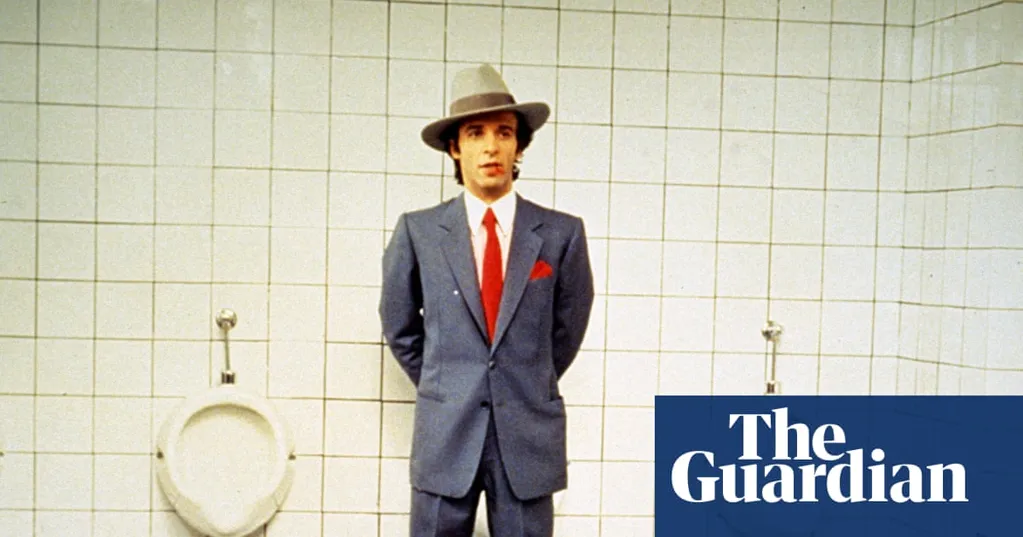The latest in our ongoing series of writers remembering their go-to comfort picks is a tribute to Roberto Benigni's Italian comedy farce.
I've never been drawn to humour built on exaggerated mishaps. Roberto Benigni's Italian comedy Johnny Stecchino is the exception. Yes, it's farce, but it's also sly social commentary, ridiculing the mafia without sanctifying its opposition, and playing with the gap between how things are and how they appear.
Six years before his Oscar-winning role in Life is Beautiful introduced him to a global audience, Benigni wrote, directed and starred in this 1991 box office hit that instantly became a national classic. Stecchino is Italian for toothpick, and mafia boss Johnny Stecchino always has one between his lips, a prop that defines his swaggering persona.
I first saw the comedy on TV a few months after moving to Sardinia in 2003. Struggling to follow the plot, I kept mixing up Dante, the naive, banana-munching bus driver, with his doppelganger Johnny - both played by Benigni - who others often mistake him for. His name is no accident: Dante, like Italy's great poet guiding readers through the Divine Comedy. But this Dante stumbles through his own comic inferno with no map and no clue, surviving on oblivious charm. Even then, I recognised my own bewilderment in his incomprehension, and seeing it played for laughs made my confusion over cultural codes feel lighter.
The story hurtles forward: Dante meets Maria, the gangster's glamorous wife, played by Benigni's own wife, Nicoletta Braschi, who sees in him a perfect solution. Lure him to Palermo, pass him off as her husband, and have him assassinated in Johnny's place so she can escape the mafia for good. Dante is wined and dined, treated with baffling deference, and listens earnestly as a mobster, introduced as Johnny Stecchino’s uncle, gravely dispenses “truths”. He assures Dante that the cocaine he is offered is actually diabetes medicine, and later reveals the “true evil of Sicily” is not the mafia, but Palermo’s traffic. Dante nods with heartfelt conviction, as if zio has finally voiced what he’s believed all along. Every scene teeters between menace and absurdity, yet Dante grins his way through.
One of my favourite moments comes when Dante attends the opera with Maria. Mistaken for Johnny, he is told he’s an assassin. The camera cuts between the jeering crowd and his confused expression. Thinking they’re angry about the banana he stole earlier, he waves a banknote, insisting he meant to pay after the first act. The solemnity of the opera makes his misplaced apology even more absurd. It takes me back to an afternoon in Abruzzo, au pairing, when local friends told me the family’s money was macchiato di sangue - stained with blood. I pulled out a 5,000-lire note, saw it was clean, and shrugged. Both Dante and I carried on in ignorance; our literal interpretations shielding us from truths we couldn’t grasp.
The comedy lies as much in the visuals as it does in the dialogue. Benigni’s performance is physical musicality: a loping gait and a body that is constantly angling and swerving, as if always half a step out of sync with the world around him. He jumps when he bumps into people and objects. The camera lingers on his face, catching every flicker of misplaced confidence. Palermo’s streets have the theatricality of a stage set, framing him as if he has wandered into the wrong play which, in a sense, he has. Timing is everything: the half-beat before a misunderstanding lands; the long pause that turns menace into farce.
Italian cinema has always been good at holding opposites in the same frame. From the grit of neorealism to the bittersweet social comedies of the 1960s, it has never been afraid to let humour sit alongside tragedy, and political commentary alongside romance. Even in comedy, there’s usually a truth tucked inside the joke. In the UK or the US, this might stay on the surface. In Italy, it becomes a satire about complicity, identity and survival.
Twenty-two years later, I’m fully at home in Sardinia and whenever I watch Johnny Stecchino, I laugh out loud, the way Italians do when slapstick hits just right. The scenes with the banana, the marked banknote and the road-safety lectures to mafiosi are as gloriously daft now as the first time I watched them. Back then I didn’t know who was who or what was going on and laughed anyway. Proof that sometimes, like Dante, you have to keep going even when the story makes no sense. And if you’re lucky, you get to look back decades on and see the comedy in it all.
